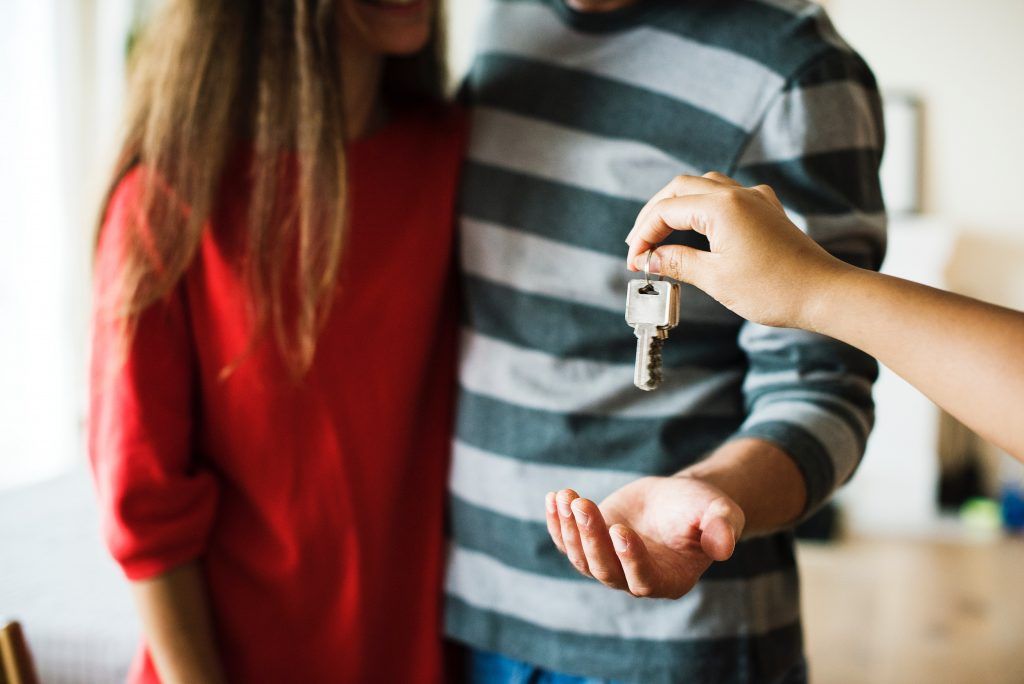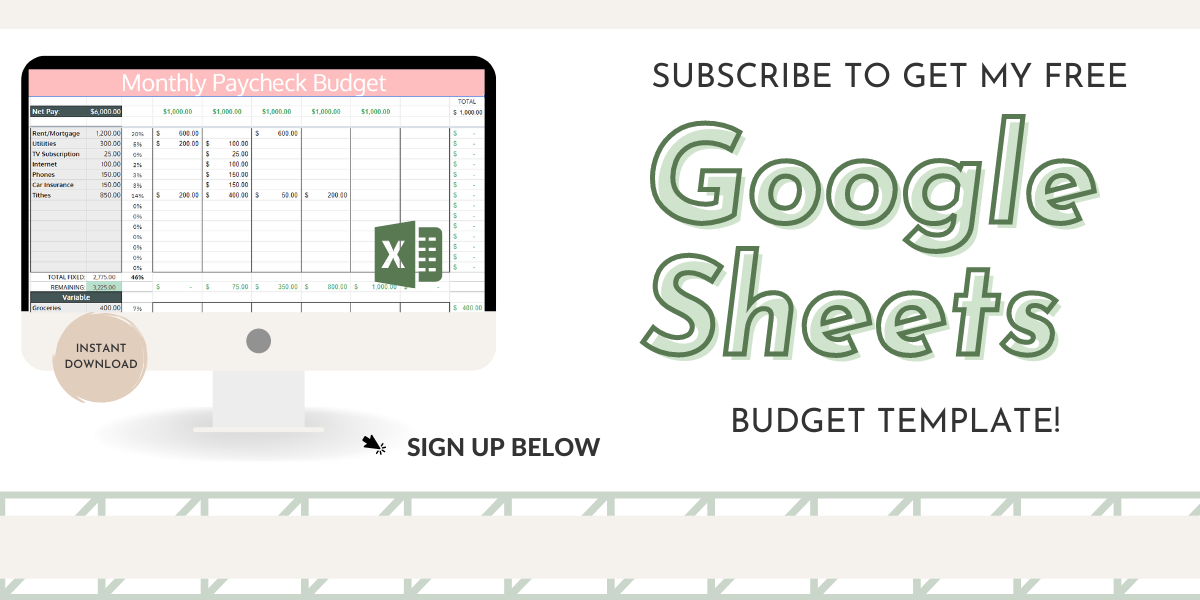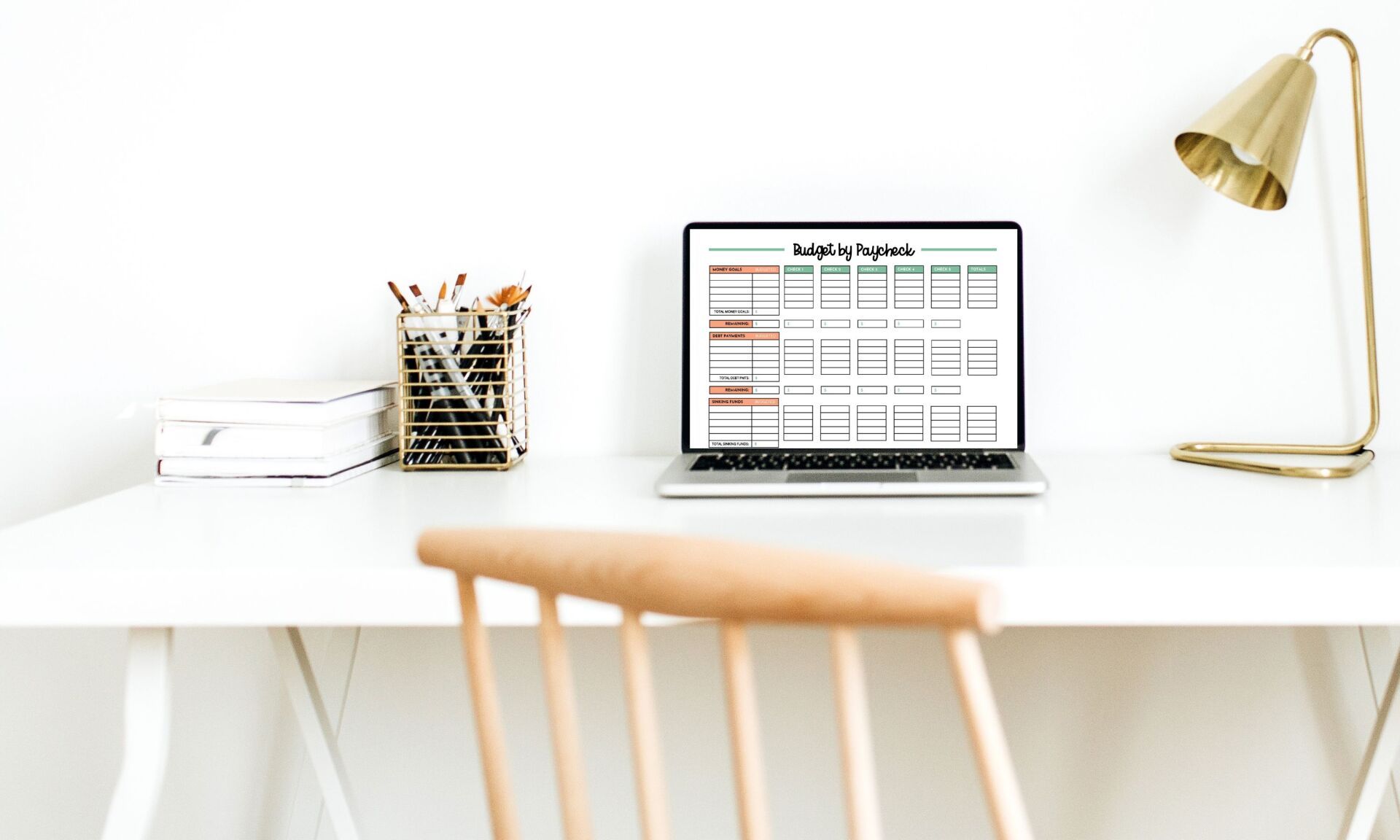What You Need to Consider Before Buying Your First Home
There's all sorts of information out there about buying your first home, but most of it's from people trying to sell you a house you can't afford or trying to loan you money.
I'd like to give you some down to earth, simple advice on how to buy your first home the right way!
I'll warn you, the advice I'm about to give isn't the norm in our culture.
Many people, when buying their first home, bite off more than they can chew and don't go through the proper steps to ensure they are financially ready.
Here is exactly what you need to do BEFORE buying your first home.
WHAT YOU NEED TO DO BEFORE BUYING YOUR FIRST HOME

1. GET OUT OF DEBT.
Your mortgage payment will be a lot easier to swallow if it's not accompanied by any other monthly payments.
The difference between consumer debt and mortgage debt is that your home will hopefully only go up in value.
On the other hand, taking out debt for something like a car means you're taking on debt for something that only goes down in value.
Monthly payments weigh your budget down and hinder you from saving for a down payment and paying off your home early.
The best way to have a healthy financial life is to stay out of debt.
Related Content:
2. FULLY FUND YOUR EMERGENCY FUND.
Before you buy your first home, you should have at minimum 3-6 months work of expenses saved in your emergency fund.
This ensures that you have money set aside to pay for an large expenses that suddenly come up after purchasing your home.
The basement floods. Your AC goes out in the dead of summer. You start going all Chip and Jo on the home and discover a mold problem.
All the above expenses more than likely were paid for by your landlord when renting, not anymore! It's all you boo!
3. HAVE 10-20% SET ASIDE FOR A DOWN PAYMENT.
Although it's easy to buy a house with little to nothing down, don't fall for it. If it sounds too good to be true, it's usually too good to be true.
While buying a house with little to nothing down sounds awesome, it's highway robbery with how much you'll pay in interest and fees.
It will take FOREVER to pay off your home if you go this route.
Now, I know that in some states it seems like a pipe dream to save a 20% down payment ( think California ).
This begs the question, what should you do when it will take you more than five or so years to save for a down payment?
WHEN YOU LIVE IN AN EXPENSIVE STATE
In this case, my first recommendation would be to wait and rent until you can save for it, if it will take you less than a few years to save for a down payment.
If it's going to take more than five or so years, I'd say save at least 10% and put that down.
Then, get to the 20% down mark as fast as possible by making extra payments on your mortgage.
The reason you should do this is because any time you put less than 10% down, you'll pay a premium because of it- PMI.
WHAT IS PMI?
If you put less than 20% down for a home, you will pay PMI (Private Mortgage Insurance).
Simply put, PMI is a form of insurance that protects your lender from the risk you default on your mortgage.
This is a separate, extra monthly cost to your mortgage payment that does not go towards reducing your loan.
Once you hit the 20% mark, your PMI will drop off.
In other words, if you put less than 10% down, you won't pay PMI for the life of the loan. You'll pay PMI until you hit 20% of principal paid off.
It's BEST to have 20% down, but for sure no less than 10% down.
4. STAY A WHILE.
If you aren't planning on living in a home long-term, it might not be a smart decision to buy it.
Consider renting if you know your living situation will be temporary.
If you're not crazy about where you live, what's the point in buying a house there?
Instead, rent and save the extra money for a larger down payment on a home that is in an area you want to live for some time!
5. CONSIDER HOW MUCH HOUSE YOU CAN AFFORD.
As a rule of thumb, your mortgage payment + taxes and insurance should not be more than 25% of your monthly take-home pay. Be careful, lenders will often tell you that you can afford more than what you can!
Your take-home pay is what your household takes home after taxes and other deductions. In other words, what is actually deposited into your bank account.
If your mortgage takes up more than 25% of your take home pay, you are house poor.
Being house poor simply means you are a slave to your mortgage payment.
Most house poor people don't have much money left every month for saving and investing because they bought more house than they could afford.
Having a bigger, newer, and more modern home isn't worth the financial stress it brings.
6. DO A MOCK BUDGET.

While figuring out how much house you can afford, create a mock budget that includes your mortgage payment, taxes and insurance, and money you'll need to set aside for repairs, maintenance, etc.
If you're not yet living on a budget, this is an essential step to living in financial peace and one that should be done before you purchase a home!
A monthly budget is a plan for your money. If you don't have a plan, you'll wonder where all your money went instead of telling it where to go.
Especially when you're a homeowner, a budget is your roadmap to ditching financial stress and living in financial peace!
Related Content:
7. SET ASIDE MONEY FOR REPAIRS.
It's not a question of if you'll have any repairs, it's a question of how soon you'll need the repairs!
If you have no money set aside for repairs and maintenance, you're playing a game of russian roulette that you're bound to lose.
Home ownership is a lot more fun if you're not stressed about every single expense that comes with it.
Murphy is bound to hit, so it's important to set aside money for when he does. I recommend set up a home repairs/maintenance sinking fund!
8. GET PRE APPROVED.
To get pre-approved means the lender will verify your financial information and do some preliminary underwriting.
Pre-approval carries more weight than being pre-qualified , which is a simple conversation about your assets, liabilities and down payment.
Pre-approval is the green light that you're ready to start your home searching.
9. ONLY TOUR HOMES IN YOUR BUDGET.
Don't tempt yourself by touring homes that are out of your budget.
It seems harmless, the good ol "it doesn't hurt to look." I think that's BS. It DOES hurt to look.
Does HGTV make you want to renovate your entire home and crunch numbers for a six million dollar house? Me too.
Imagine how much more touring a home in person that is out of your budget will make it more of a temptation!
Act your wage, tour homes in your budget.
10. DON'T BASE AFFORDABILITY ON OTHERS STANDARDS.
Don't buy a home just because your friend did and it's the "grown up" thing to do.
I see plenty of social media posts with captions "did an adult thing and bought a new car!" It's not an "adult" thing if you financed an item that's only going down in value. It's stupid.
Just because everyone else is buying a home with nothing down doesn't mean it's smart. Don't blindly follow the crowd!
11. GET THE RIGHT TYPE OF MORTGAGE.
In my opinion, a fixed-rate 15 or 20 year loan is the way to go when choosing a mortgage.
While other types of loans initially seem attractive, there are a few reasons why fixed-rate is the best option.
TYPES OF MORTGAGES
- Adjustable Rate (ARM) - this type of mortgage sounds attractive because it boasts an initially low-rate loan. However, after a defined period the rate fluctuates with the market , exposing the homeowner to significant risk.
- Federal Housing Administration (FHA) - this type of loan is designed for first time home buyers to make buying a home easier. These require as little as 3.5% down and are backed by the government. This type of loan now requires you to pay PMI over the life of the loan!
- Conventional Fixed Rate - A conventional fixed-rate loan locks you into an interest rate so you aren't subject to fluctuations.
The fixed rate mortgage saves you the most money in interest and fees overall and is not subject to fluctuation, meaning your mortgage payment will be the same every single month!
THE RIGHT WAY TO BUY YOUR FIRST HOME
The right time to buy a home is when you have a healthy financial life. For some this will be at age 22 and for some this will be at age 35!
Your home should be a blessing, not a financial burden.
Skip the "normal" ways of buying a home in America that include buying before your consumer debt free, buying more house than you can afford, and putting nothing down.
The wait might be hard, but it will be worth it when you do it the right way.

Share this post!






















































































































